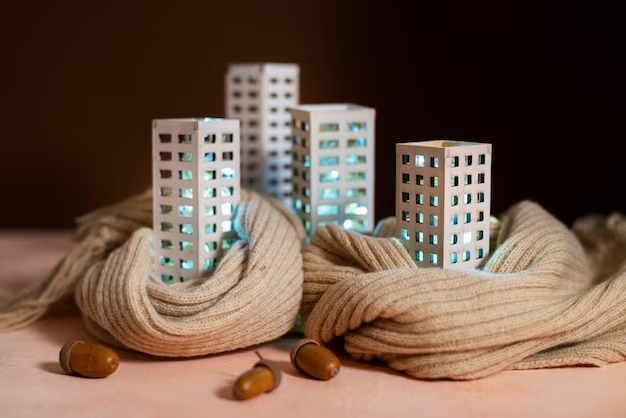The concept of owning freehold property in Dubai has been a magnetic lure for both local and international investors over the years. Essentially, a freehold property is one where the owner has absolute ownership of the land and the building upon it, indefinitely. In contrast to leaseholds, where possession is temporary and conditional, freeholds offer a permanent stake in the burgeoning real estate market of Dubai. This article delves into the nuances of freehold properties, the regions designated as freehold areas, and how they compare to leaseholds in terms of ownership rights and restrictions.
Freehold Property: A Gateway to Permanent Ownership in Dubai
Until the early 2000s, the ownership of property in Dubai was a concept restricted to the local population. However, a radical transformation occurred when the government introduced legal reforms that allowed foreigners to purchase freehold property in certain areas. This move opened up the market, and Dubai quickly became a hotspot for real estate investment. Freehold property is especially attractive as it confers complete control to the owner; they can sell, lease, or inhabit their property as they wish. The permanence of ownership is further accentuated by the fact that it could be passed on to heirs, making it an enduring investment.
- Permanence of Property Rights
- Freedom to Transact and Utilize
When discussing freeholds, it is crucial to consider the designated freehold areas in Dubai. Initially, the concept was limited to a few areas, but over time, as the city expanded, so did the list of freehold zones. These areas were strategically identified to enhance foreign investment and contribute to economic growth. They include fast-growing districts like Dubai Marina, Palm Jumeirah, and Downtown Dubai, among others. Each area offers a unique advantage, whether it’s the waterfront views of JBR or the bustling city life of Business Bay. In these freehold areas, expatriates and foreign nationals could enjoy the same ownership rights as local Emiratis.

Leaseholds vs. Freeholds: Understanding the Differences in Dubai
The Dubai property market operates on two main ownership structures: leaseholds and freeholds. The distinction between them is significant. While freehold ownership grants the purchaser full ownership of the property and the land it stands on, leasehold arrangements usually involve the right to use the property for a specified term, typically ranging from 10 to 99 years. Unlike freeholds, leaseholds restrict owners when it comes to selling or transferring ownership.
| Ownership Aspect | Freehold | Leasehold |
|---|---|---|
| Duration | Indefinite | Up to 99 years |
| Control Over Property | Full control | Limited by lease terms |
| Alterations & Renovations | Permitted | Subject to landlord’s approval |
| Inheritance | Can be inherited | Returns to landlord upon expiry |
| Investment Appeal | High for long-term investment | Better for short-term occupancy |
These core contrasts establish freehold properties as a more appealing long-term investment opportunity for many. Additionally, they underscore the permanence and autonomy associated with freehold ownership – traits that are not afforded by leaseholds.
Freehold Areas: Expanding the Landscape of Ownership Opportunities
Originally, the number of freehold areas in Dubai was limited. This was partly due to the government’s cautious approach to opening the property market to non-GCC nationals. However, as the positive economic impacts of foreign investment became evident, the government steadily increased the number of freehold areas. Today, the list includes a wide variety of zones, reflecting Dubai’s diverse real estate offerings. Some areas are renowned for luxury living, while others are more affordable, ensuring that a range of investors can find suitable properties.
- Dubai Marina: Known for its cosmopolitan atmosphere and waterfront apartments.
- Jumeirah Beach Residence (JBR): Praised for its beachfront promenade and leisure activities.
The expansion has catered to a growing demand and has been especially significant as Dubai’s landscape has evolved. The increase in available freehold properties has given a wider range of people the opportunity to own a piece of this dynamic city. As we delve further into the intricacies of this ownership type, we will explore the impact of such properties on the real estate market and the broader economy of Dubai.

The Impact of Freehold Property on Dubai’s Real Estate Market
The introduction of freehold property ownership in Dubai has had a profound impact on its real estate market. It has attracted a diverse group of international investors, eager to capitalize on the city’s growth and potential for high returns on investment. This influx of capital has spurred a property development boom, leading to the construction of iconic skyscrapers, luxury villas, and expansive residential complexes. Not only has this made the skyline of Dubai instantly recognizable, but it has also provided ample opportunities for businesses related to construction, real estate services, and interior design, thereby boosting the economy.
Furthermore, the stability that comes with freehold ownership has encouraged investors to think long-term. Property owners are more inclined to invest in their homes and communities, knowing that their investments are secure indefinitely. This sense of security has fueled a surge in property values in freehold areas, benefiting both individual owners and the real estate market as a whole.
- Growth of Infrastructure and Development
- Long-term Investment and Increased Property Values
The allure of property ownership in Dubai has also had several ripple effects:
- Increased interest in the interior design and home renovation industries as owners personalize their properties.
- Enhanced community development with owners investing in local services and businesses.
The Broad Economic Benefits of Freehold Ownership
The establishment of freehold properties has not only revolutionized the Dubai property market but also served as a catalyst for broad economic development. The property sector is a significant contributor to Dubai’s GDP, and the steady demand for freehold properties ensures continuous investment into the city. This demand has attracted professionals from all over the world to live and work in Dubai, thus driving population growth and creating a multicultural environment that further adds to the allure of the city.
Moreover, as more people assume permanent residence through freehold ownership, there is an expansion in consumption and an increased demand for a wide array of services, from retail to education and healthcare. This rise in consumer spending bolsters various other sectors of the economy, creating a holistic development approach.
The full effects of freehold property ownership on the economy include:
- Stimulation of job creation in various industries beyond real estate.
- Expansion of Dubai’s tax base through increased registration and transactional property fees.

In conclusion
The introduction and expansion of freehold properties in Dubai have dramatically reshaped the city’s real estate landscape and motivated economic advancement. This ownership model has extended opportunities for investment, residency, and growth, ultimately solidifying Dubai’s position as a global hub for business and luxury living. Whether a seasoned investor or a first-time homebuyer, the freehold property market in Dubai offers a promising, secure, and profitable venture. With careful consideration and informed decision-making, owning a piece of this vibrant city could be a reality for many.
FAQs on Freehold Property in Dubai
Q: What exactly does freehold property mean in Dubai?
A: In Dubai, a freehold property means that the buyer owns both the building and the land it sits on indefinitely. This type of ownership grants the full rights to use, sell, or lease the property, and it can also be passed down as an inheritance.
Q: Can foreigners buy freehold property in Dubai?
A: Yes, foreigners can buy freehold property in designated freehold areas across Dubai. The government has identified specific zones where non-GCC nationals are permitted to own property.
Q: Are there any restrictions on selling freehold property in Dubai?
A: Generally, there are no restrictions on selling freehold property. Owners can sell their property to any buyer without nationality limitations within the freehold areas.
Q: Is freehold property more expensive than leasehold property in Dubai?
A: Freehold properties can be more expensive due to the complete ownership rights and the property’s potential for appreciation in value. However, prices can vary greatly depending on location, size, and property type.
